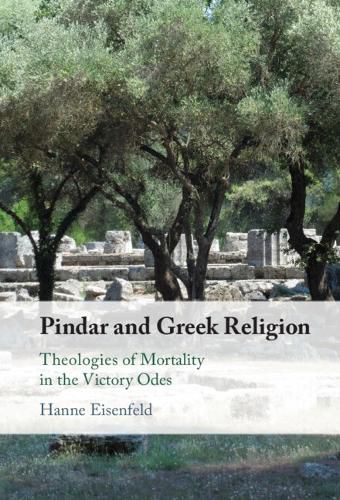Readings Newsletter
Become a Readings Member to make your shopping experience even easier.
Sign in or sign up for free!
You’re not far away from qualifying for FREE standard shipping within Australia
You’ve qualified for FREE standard shipping within Australia
The cart is loading…






Pindar’s victory songs teem with divinity. By exploring them within the lived religious landscapes of the fifth century BCE, Hanne Eisenfeld demonstrates that they are in fact engaged in theological work. Focusing on a set of mythical figures whose identities blur the boundaries between mortality and immortality (Herakles, the Dioskouroi, Amphiaraos, and Asklepios), she newly interprets the value of immortality in the epinician corpus. Pindar’s depiction of these figures responds to and shapes contemporary religious experience and revalues mortality as a prerequisite for the glory found in victory. The book combines close reading and philological analysis with religious historical approaches to Pindar’s songs and his world. It highlights the inextricability of Greek literature and Greek religion, and models a novel approach to Greek lyric poetry at the intersection of these fields.
$9.00 standard shipping within Australia
FREE standard shipping within Australia for orders over $100.00
Express & International shipping calculated at checkout
Pindar’s victory songs teem with divinity. By exploring them within the lived religious landscapes of the fifth century BCE, Hanne Eisenfeld demonstrates that they are in fact engaged in theological work. Focusing on a set of mythical figures whose identities blur the boundaries between mortality and immortality (Herakles, the Dioskouroi, Amphiaraos, and Asklepios), she newly interprets the value of immortality in the epinician corpus. Pindar’s depiction of these figures responds to and shapes contemporary religious experience and revalues mortality as a prerequisite for the glory found in victory. The book combines close reading and philological analysis with religious historical approaches to Pindar’s songs and his world. It highlights the inextricability of Greek literature and Greek religion, and models a novel approach to Greek lyric poetry at the intersection of these fields.